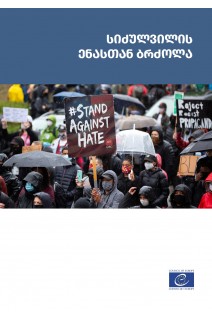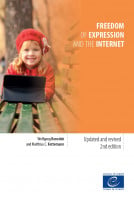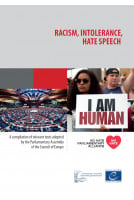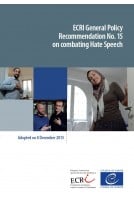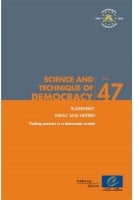The Recommendation starts from the premise that hate speech is a deep-rooted, complex and multi-dimensional phenomenon. It poses a direct threat to democracy and human rights. Increasingly present online and offline, it not only undermines individuals’ essential rights and fundamental freedoms, but it also humiliates and marginalize targeted individuals and groups.
The recommendation provides a working definition of Hate Speech which distinguishes different levels in accordance to their gravity and calls for implementing adequately calibrated and proportionate measures. Member states are invited to adopt an effective legal and policy framework covering criminal, civil and administrative law, and to set up and implement alternative measures, including awareness-raising, education, the use of counter and alternative speech. States are also encouraged to set up support mechanisms to assist those targeted by hate speech, conduct monitoring and engage in international co-operation and national co-ordination.
Guidance is also provided to other relevant stakeholders playing a crucial role to deliver comprehensive strategies to prevent and combat hate speech, including public officials, elected bodies and political parties, internet intermediaries, media and civil society organisations.
RECOMMENDATION CM/REC(2022)16 Preamble
Appendix to Recommendation CM/Rec(2022)16
Principles and guidelines on a comprehensive approach to combating hate speech
EXPLANATORY MEMORANDUM Introduction
1. Scope, definition and approach
2. Legal framework
Criminal Law
Civil and Administrative Law
Legislation regarding online hate speech
3. Recommendations addressed to key actors
Public officials, elected bodies and political parties
Internet intermediaries
Media
Civil society organisations
4. Awareness-raising, education, training, and use of counter- and alternative speech
5. Support for those targeted by hate speech
6. Monitoring and analysis of hate speech
7. National co-ordination and International co-operation
